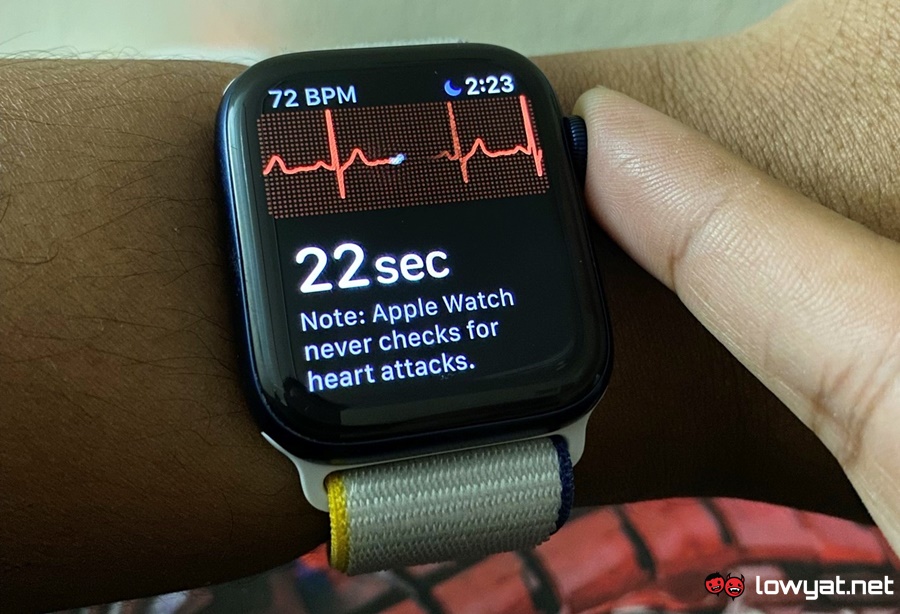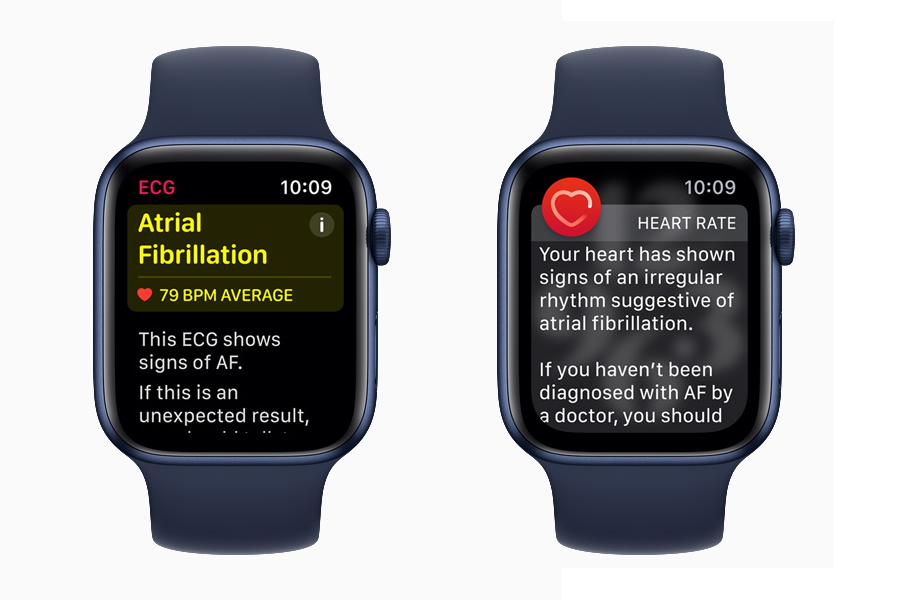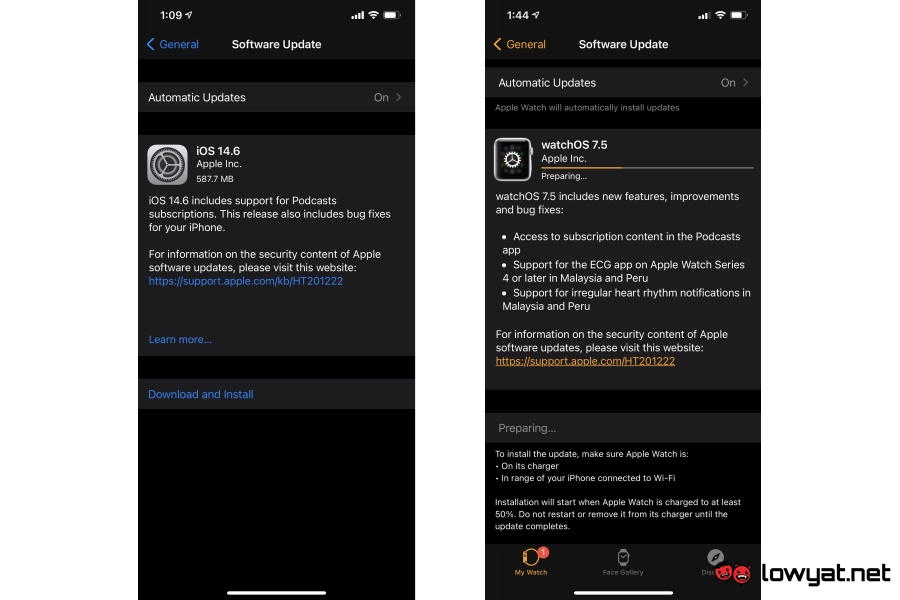These updates have also opened up the irregular heart rhythm notification feature (IRNF) in Malaysia as well. IRNF is supported by all models across the family since Apple Watch Series 1 but you need either Apple Watch Series 4, Series 5, or Series 6 if you want to utilise the ECG app.
Among the main aim of the ECG app and IRNF is allowing users to identify a heart condition called atrial fibrillation (AFib) which if left unchecked could lead to a stroke. Dr Mohamed Ezani Taib of the National Heart Institute (IJN) pointed out that one-third of IJN’s 200,000 annual cases consist of AFib which showed how common this is in Malaysia. Once activated, users can capture an ECG by putting their fingertip on the Apple Watch’s Digital Crown for 30 seconds and the result will then be saved into the Health app in their iPhone which can be shared as a PDF file. As for IRNF, it looks for signs of irregular rhythm from time to time and would confirm such rhythm with multiple readings before it alerts the user. According to Apple, both the ECG app and IRNF have been classified by the Ministry of Health’s Medical Device Authority (MDA) as Class B software medical devices. If you have been following the news updates on them, you may recall that they have received the approval back in February. Apple said that during a clinical trial, the Apple Watch’s ECG feature which is said to have similar capability as per a single lead ECG has 99.3 per cent specificity in terms of classifying a sinus rhythm and 98.5 per cent for AFib. The company also said that the ECG app is able to classify 87.8 per cent of the recordings involved in the study. On another hand, the IRNF was validated through a trial called the Apple Heart Study that was conducted in 2017 and 2018 by the company and the Stanford University School of Medicine. With the participation of more than 400,000 Apple Watch users, it was indeed one of the largest cardiovascular trials to date.
As noted earlier, you can activate the ECG app and IRNF once you update your Apple Watch and iPhone to watchOS 7.5 and iOS 14.6, respectively. However, do note that the results from these features should be taken only as early warnings rather than definitive medical diagnostic. They are also not being designed to detect heart attack, blood clots, stroke, high blood pressure, congestive heart failure, or high cholesterol level. Ultimately, you should seek medical professionals for proper advice and not rely completely on these features, no matter how advanced you think they may be. (Source: Apple.)


